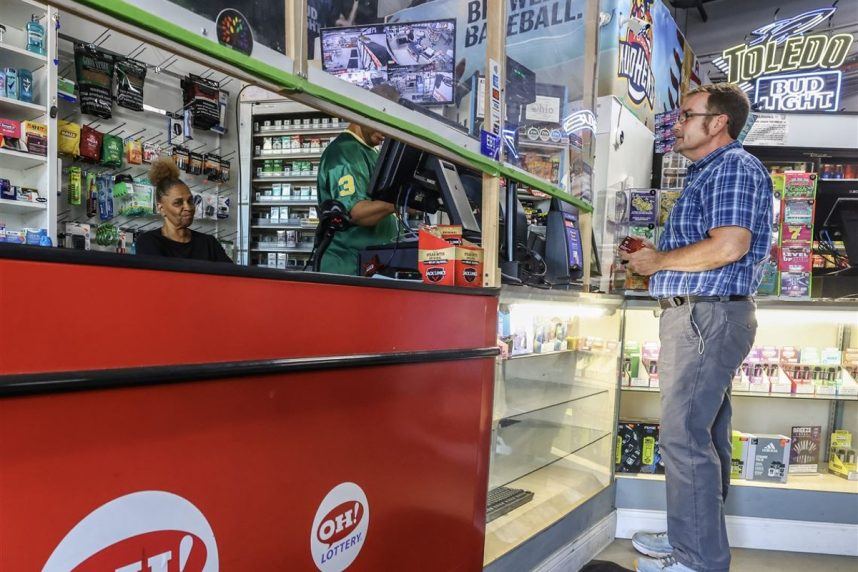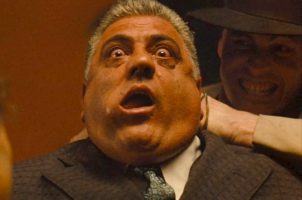Ohio Gaming Study Commission Told iLottery Won’t Hurt Brick-and-Mortar Retailers
Posted on: March 22, 2024, 10:55h.
Last updated on: March 22, 2024, 11:12h.
A legislative commission in Ohio formed to determine if further expansion of the Buckeye State’s gaming industry is warranted and whether regulatory changes are needed to current operations heard testimony this week from lottery officials who urged the panel to recommend allowing online ticket sales.

The Study Commission on the Future of Gaming in Ohio was formed last year. It’s scheduled to present its recommendations to the Legislature by June 20, 2024.
The committee recently heard from Ohio Lottery Director Michelle Gillcrist. She told the 11-person commission that allowing people aged 18 and up to purchase lottery tickets online and possibly play instant interactive scratch-off games would significantly increase revenues.
The Ohio Lottery benefits K-12, vocational, and special education programs. Since 1974, the lottery has provided more than $31 billion to the Ohio Lottery Profits Education Fund. During the state’s 2023 fiscal year, the Ohio Lottery directed a record $1.46 billion to the education account.
Retailers Unimpacted
Gillcrist told committee members that the Ohio Lottery is being restrained by remaining an in-person business. She explained that several neighboring states, including Michigan and Pennsylvania, and soon, West Virginia, allow online lottery sales.
For Friday night’s $977 million Mega Millions jackpot drawing, Ohioans must visit a physical Ohio Lottery retailer to purchase a ticket or use an online third-party courier service that operates in a grey legal capacity. The same is true for Saturday’s $750 million Powerball jackpot.
Gillcrist said the lottery’s attractiveness could wane in the aftermath of online sportsbooks debuting last year. Placing a sports bet is considerably easier than buying a $2 Mega Million or Powerball play, she said.
Competition from other gaming activities remains a challenge,” Gillcrist declared. “Ohioans now have an unprecedented number of gaming alternatives in which to use their discretionary income.”
Gillcrist opined that the Ohio Lottery’s brick-and-mortar retailers wouldn’t be negatively impacted by online sales. She cited other states where iLottery is allowed and how online sales have brought in new players while brick-and-mortar retailers have retained their customer bases.
Along with iLottery, the Study Commission on the Future of Gaming in Ohio previously heard from online casino operators as to why the state should legalize interactive slot machines and table games. iGaming representatives last month told the committee that online casinos would complement, not hurt, brick-and-mortar casinos and racinos.
Sportsbooks Make Appeal
During Tuesday’s meeting, the sports betting industry pleaded with the commission to recommend that the state’s sports betting tax be lowered.
Ohio initially taxed gross revenue won by oddsmakers at 10% when the market went live in January 2023. The rate was doubled about six months later at the request of Gov. Mike DeWine (R).
Scott Ward, the vice president of the Sports Betting Alliance, an industry trade group consisting of members DraftKings, FanDuel, BetMGM, and Fanatics, said Ohio’s increased sports betting tax is constraining operations.
Ohio’s crowded sports betting industry, which currently consists of dozens of brick-and-mortar and online sportsbooks, already poses operational challenges for licensees. The elevated tax duty further hampered sportsbooks’ bottom lines and ability to compete with unregulated offshore sports wagering websites.
Ward opined that the state didn’t legalize sports betting for tax revenue but to protect consumers and combat the illegal market. Ward asked the commission to recommend to the legislature that the sports betting tax be reverted to the 10% rate.
Related News Articles
New York Lawmakers Say State Can’t Afford to Fold on iGaming
DraftKings Lifts 2024 Guidance with $750M Acquisition of Jackpocket
Michigan Online Casinos Experience Record November Due to Strike
New York iGaming Political Ad Launched, Campaign Backed by Sportsbooks
Most Popular
Las Vegas Overstated F1 Race’s Vegas Impact — Report
Mega Millions Reportedly Mulling Substantial Ticket Price Increase
NoMad Hotel to Check Out of Park MGM on Las Vegas Strip
Most Commented
-
End of the Line for Las Vegas Monorail
— April 5, 2024 — 90 Comments -
Mega Millions Reportedly Mulling Substantial Ticket Price Increase
— April 16, 2024 — 8 Comments -
Long Island Casino Opponents Love New York Licensing Delays
— March 27, 2024 — 5 Comments
















No comments yet